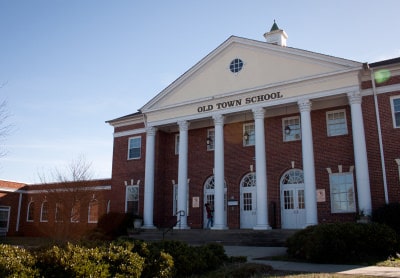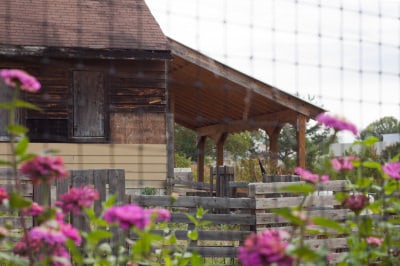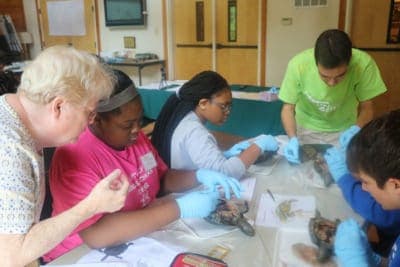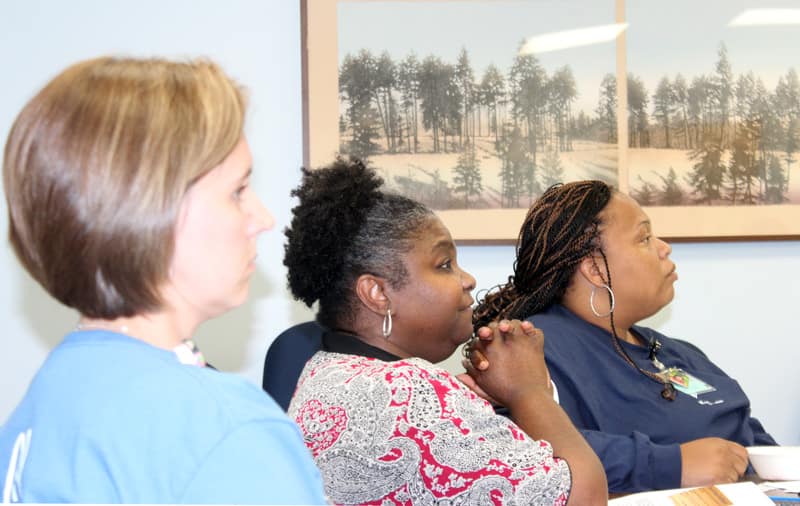
Great Expectations, an initiative of the Kate B. Reynolds Charitable Trust, is building collaborative bridges between agencies and those they serve in Forsyth County to increase kindergarten readiness. A key aspect of this new, community-wide funding approach is the Forsyth Family Voices project. As Great Expectations considers its second round of grant-making, voices from a diverse set of families directly influence funding priorities.
“In order for lasting change to happen in Forsyth County, business will have to be done differently, and families will need seats at the table,” says Tracey Greene-Washington, director of special initiatives, Kate B. Reynolds Charitable Trust. “This is what is exciting about Forsyth Family Voices—the work to amplify family voice and strengthen agency practice is building a strong foundation for equity in our community.”
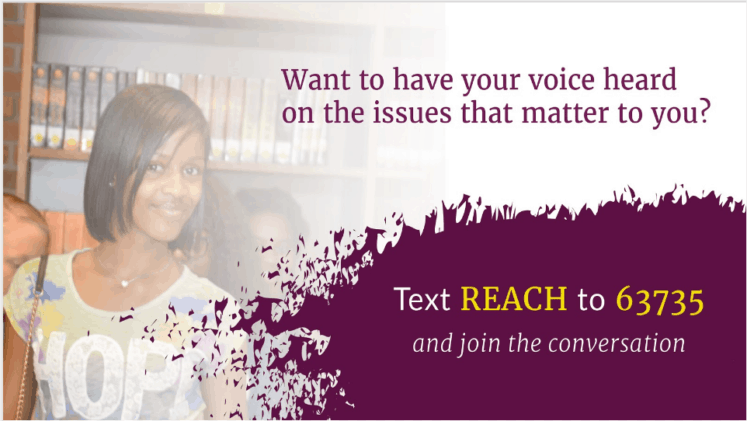
“The work to amplify family voice and strengthen agency practice is building a strong foundation for equity in our community.”
—Tracey Greene-Washington, Kate B. Reynolds Charitable TrustCollecting the voices of diverse parents across the county is no easy task. The Great Expectations team was methodical in its process to ensure this effort took a new approach. MDC, the activating agency for Great Expectations, hired Nolo Consulting, a firm with expertise in data, evaluation, and outreach to create the infrastructure for data collection.
Forsyth Family Voices was designed in collaboration with 13 local partner organizations (or what Great Expectations refers to as the “first cohort”). To ensure a broad spectrum of parents were included in the initial round of surveys, and not just the “usual suspects,” MDC invited a variety of organizations to participate: Winston-Salem/Forsyth County Public Schools, the Department of Social Services, several Great Expectations grantees, and participants in the Forsyth Promise Kindergarten Readiness Network.

approximately one-quarter were Hispanic/Latino (24.2 percent), one in five were white/Caucasian (19.3 percent) and 2.6 percent were biracial. (Forsyth Family Voices Report.)
These organizations were invited to work together with MDC and Nolo Consulting to assist in developing the framework for a consistent survey to implement across the board. By using the same survey, data can be pooled and change measured over time.
During summer 2016, the agencies issued the survey to 307 parents. The questions, which touch on economic security to parent involvement, drive at better understanding what parents need to help their children succeed in school. In addition to surveys, roughly fifty parents participated in focus groups, back-and-forth conversations that provided deeper context and nuance about their concerns and interests.
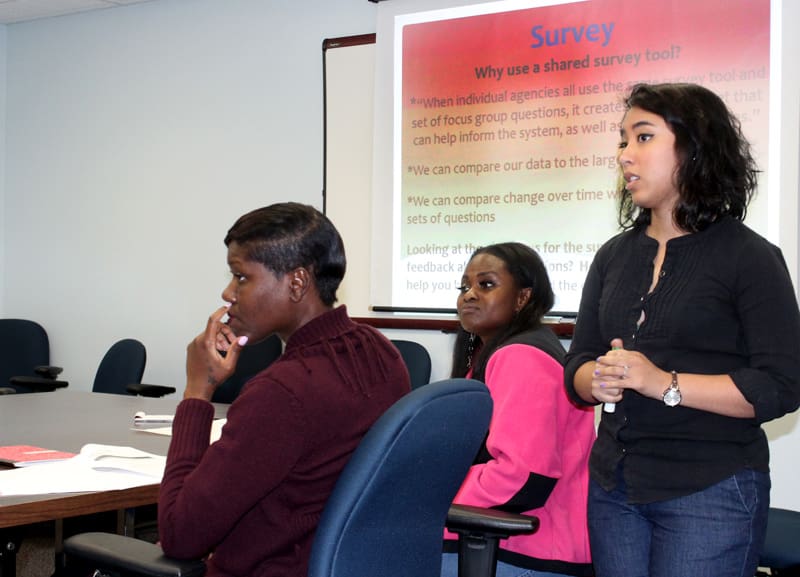
According to Cate Elander, program manager for MDC, this was one of the largest coordinated data collection efforts of its kind to date in Forsyth County. “Efforts to collect feedback from families often focus heavily on barriers and do not paint a complete picture,” explains Elander. “That’s why Forsyth Family Voices engages parents as partners—they know what their families need to succeed.”
One unforeseen benefit of Forsyth Family Voices was the way in which the survey process gave organizations a tool and a platform to build better relationships with the families they serve. Trina Stephens, Imprints Cares community engagement director in ready for school programs and an active advocate for families, participated in the first cohort.

“[Forsyth Family Voices] helped [Imprints Cares] build more of a relationship with families first,” explains Stephens. “There was a time when we just jumped right on in with what we needed to do with families, which are the home visits, or filling out paperwork. Now we take more time in the beginning to really hear what the families have to say, and get to know what their needs and wants are before pushing our agenda onto families. It has helped us step back and really listen to families more.”
Giving agencies the opportunity to learn together with other non-profits is another added benefit to the cohort model of Forsyth Family Voices. This spring, the original thirteen agencies trained a second cohort of twenty-three agencies in survey implementation. Throughout summer 2017, this second cohort will collect data from the families they serve—casting a wider and evermore inclusive net. Great Expectations anticipates second-year data will be published this fall.
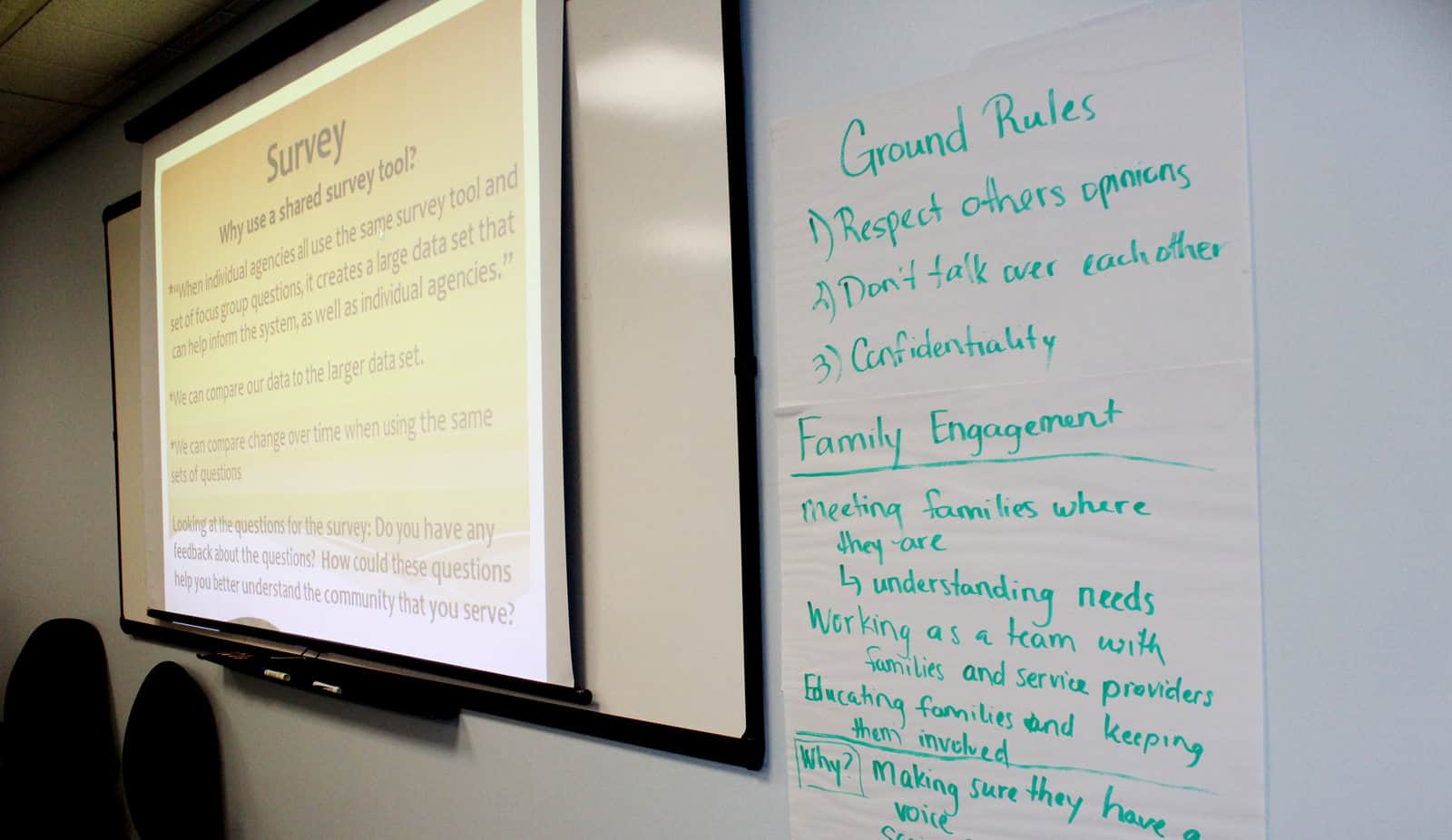
Each participating agency in the first cohort, together with parent representatives, attended a data synthesis meeting in fall 2016, and Forsyth Family Voices published a public aggregate report via the Great Expectations website.
To date, Forsyth Family Voices data reveals both serious gaps and opportunities within the early childhood services system. For example, 68 percent of parents said they need more information about health and education services for their children and family. Follow-up questions in the survey help lay the groundwork for decreasing this number. For example, the majority of parents said they preferred such information to be shared in-person (either one-on-one, via telephone, or in a larger parent meeting).
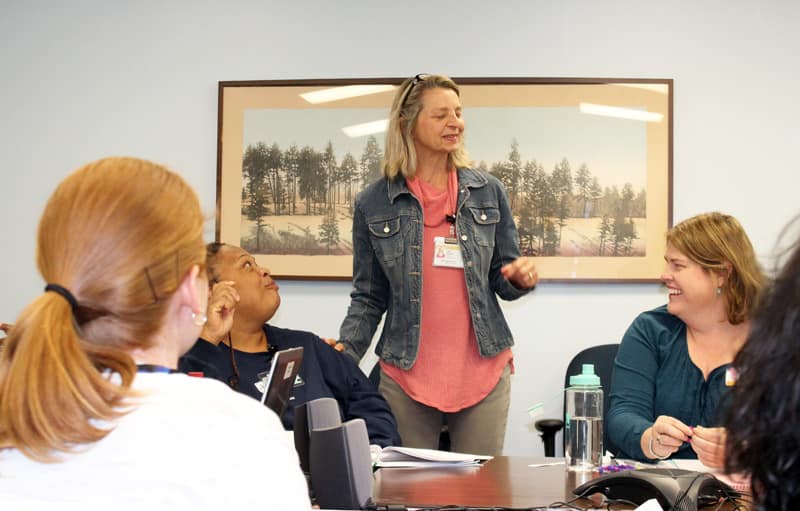
One of the most encouraging overall findings was that 93 percent of parents prioritize being a lifelong teacher for their children—no matter what their background, income, or zip code.
Almost every parent surveyed is ready to become an advocate for their child’s education. They just need the tools.
“The data identified strong levels of parent confidence in supporting their children’s education and a high motivation to be leaders in their child’s educational success,” says Elander. “Great Expectations will support efforts to build on parents’ strengths, as we continue to listen to and learn from them.”

The goals now are two-fold. First, individual agencies will use this data to improve program planning and service delivery. The Family Support Network of Greater Forsyth County was the only first-cohort agency that specializes in serving children with special needs. Chris Gentry, director, appreciated the opportunity to compare her survey data with the larger population. “It was good to see where our families fell in line with the general population and know that these were needs across the board and other programs may be able to fill this gap,” said Gentry. She was surprised to learn how much parents with special-needs children preferred to receive information about their children’s education via parenting groups (64 percent responded this was the best way, verses an overall average of 28 percent). In response to this desire for collective learning, Gentry says, “We have plans to offer a new parenting curriculum specifically focused on raising children with disabilities. This model is new and currently not offered in the Forsyth county area.”
Secondly, Great Expectations is considering overall findings in its 2017 funding decisions. This spring, Great Expectations issued a call for funding proposals, with special interest in applications that touched on parent education and connecting families with existing services. Grantees will be announced early this summer.
“It’s a continual cycle of investment and improvement,” wrote Dr. Laura Gerald, president, Kate B. Reynolds Charitable Trust, wrote in a March 2017 op-ed for The Winston-Salem Journal.
While the model is not perfect (just 8.2 percent of respondents to the survey were male, for example), Forsyth Family Voices is an innovative feedback loop for its community. The willingness of Great Expectations to adjust course according to parent feedback will surely increase the impact of its grantmaking.
Recommended reading
